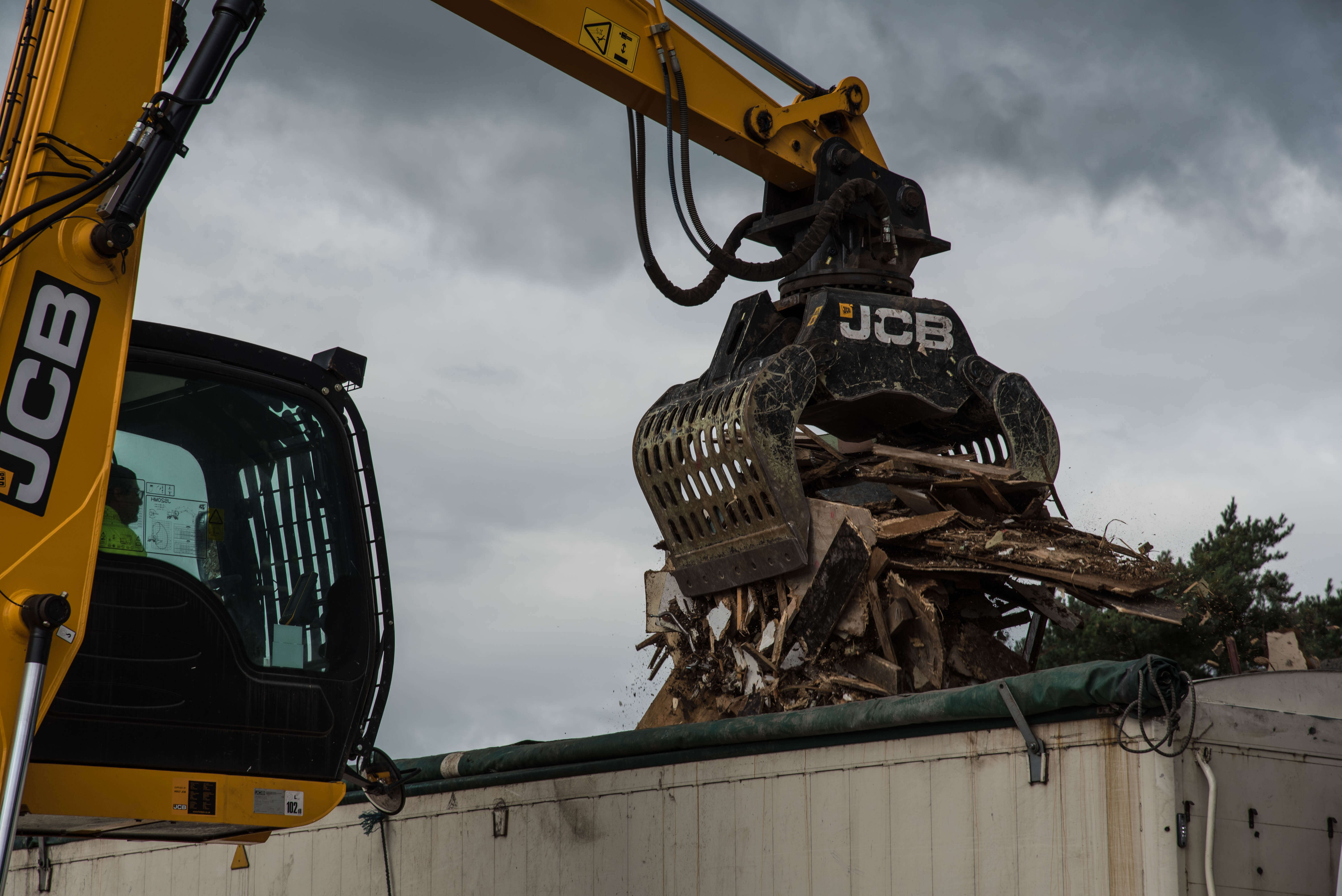The Environmental Impact of Construction Waste and How to Mitigate It

Construction is necessary. In the UK, we need to build more homes and businesses, and update the existing built environment so that it functions in a changing world. But there’s no denying that construction projects generate waste, and it can have a detrimental impact on the environment.
When it’s not handled correctly, construction and demolition waste can contribute to environmental degradation like landfill overflow, ground and air pollution, and resource depletion. Local ecosystems are damaged by hazardous waste, and construction materials that could be reused are tossed into ever-growing tips.
Your construction sites don’t have to be part of the problem. Instead, you can take simple-but-impactful steps to reduce your waste generation and reuse waste materials wherever possible. By prioritising construction waste management, you can help build better homes and offices—and a more sustainable construction industry.
The UK’s environmental regulations and sustainability goals
While you’re no longer required to draft a site waste management plan for most construction projects, UK regulations still require you to make waste reduction strategies part of your construction process.
Every construction project must meet Duty of Care stipulations, which require companies to handle waste properly, transfer and dispose of it carefully, and keep records of every step. You’ll need to keep accurate records of the types and quantities of waste you produce and how you dispose of your waste.
Plus, construction companies are expected to handle construction waste materials in a way that upholds the Waste Hierarchy, which encourages limiting waste wherever possible. If you haven’t incorporated these steps into your operations yet, now is the time:
- Prevention: Creating less waste means less winds up in landfills.
- Reusing: Many building materials can be reused in new construction projects.
- Recycling: If you can’t reuse materials, they should be recycled.
- Other recovery: Some items can’t be reused or recycled, but sometimes, they can be incinerated to generate energy.
- Disposal: When all other avenues of waste disposal have been explored, surplus materials that can’t be recycled or reused should be placed in a landfill or general incinerator—never dumped illegally.
The UK encourages proper waste management via incentives like landfill taxes and recycling credits—each designed to promote sustainable construction practices, reduce landfill waste, and protect natural resources. Building owners can also get grants and tax relief if their project has managed construction waste responsibly, so they’re keen to work with contractors who understand strategies and best practices for reducing waste.
Solutions for construction waste reduction
Without a plan for your construction waste, it tends to fall through the cracks. Hazardous materials could get dumped into a landfill, contaminating local water supplies and soil. Items that could be recycled are dumped, too, meaning reusable resources are lost forever.
You might also miss opportunities to save money by reusing materials, contributing to a higher project cost and excessive resource use. Each of these missteps impact the environment, both at a local level and on a global scale.
But you can mitigate your project’s waste with these steps:
Waste reduction
Reducing waste on the construction site starts with better planning. Measure and calculate carefully so that your materials order is more accurate. Use prefabricated components whenever you can—they may cost slightly more, but you’ll find that the additional cost is offset by less material waste in the budget.
Material reuse
Any material that’s in good nick can be reused. Concrete, steels, metal, pipes and plumbing, even old windows and doors—there’s a new home for many of the items contractors dump on a construction site. Rubble can become the base of a new road. Bricks removed from one site could build paths in another. Before you toss it in the skip, consider how it can save you money and reduce your waste.
Recycling construction waste
If it really can’t be reused, chances are, it can be recycled. Your local recycling center will take the wood, metal, rubble, glass and plastic waste you can’t reuse and make sure it’s recycled properly. Sorting your recycling as the project progresses makes it easier for your crew when it’s time to take it to the centre. Create sections on site for storing different materials and instruct your crew on how to separate recyclable items.
Innovative waste management practices
The UK’s construction industry creates about 60% of our nation’s total waste output, but forward-thinking construction firms are seeking to shrink that number. New technologies like modular building and sustainable materials sourcing will help reduce construction waste and limit the environmental impact of poor practices.
The Waste Group: Supporting sustainable construction practices
Waste produced on construction sites doesn’t have to hurt the environment. With a comprehensive waste management plan, The Waste Group can help you find ways to reduce your materials consumption and reuse materials where possible. This way, your construction company can stay compliant with the latest regulations, reduce your environmental impact, and save money, too. Talk to us about creating a more sustainable job site and a brighter future for the UK’s construction industry.


